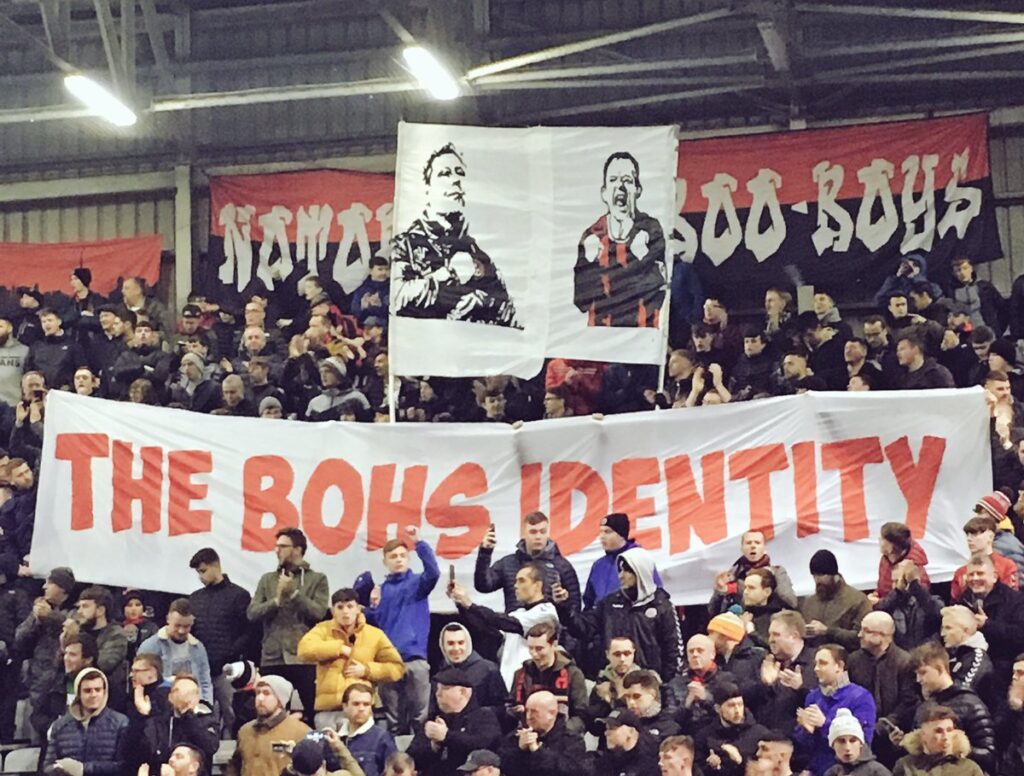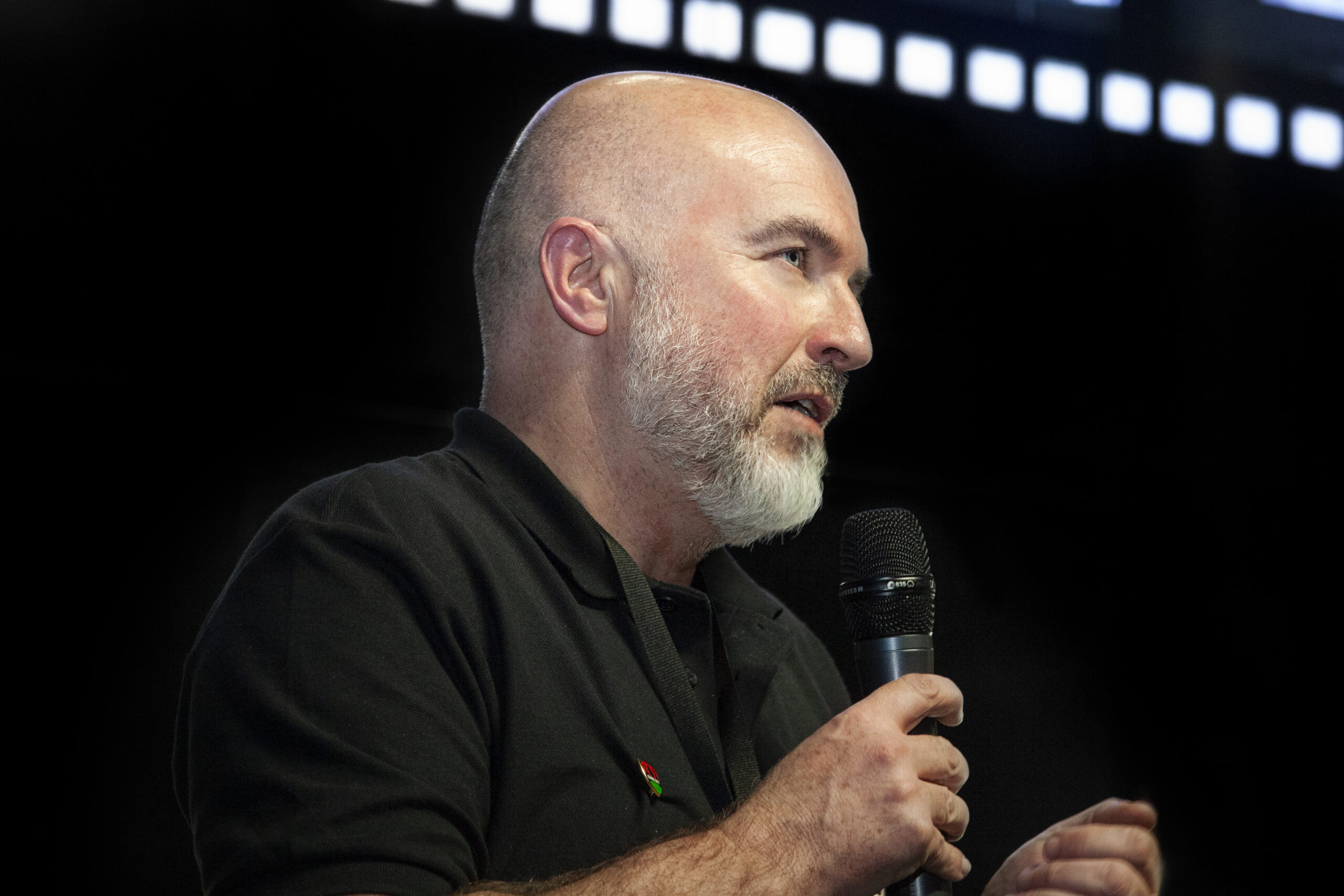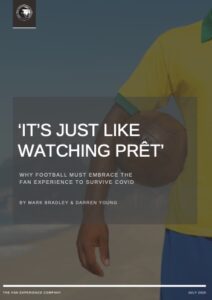The truth is, of course, that short-term need and an obsession with promotion ‘at all costs’ has relegated values to a ‘bit part role’: perhaps pinned on the dressing room wall and rarely ever glimpsed by supporters.

Does Your Club Have An Identity Crisis?

Mark Bradley
@fanexperienceco
Mark works all over Europe helping associations, leagues and clubs to understand and improve fan engagement and their match day experience.
The Fan Experience Company was founded in 2005, and in 2019/20 they oversaw the assessment of over 350 games each season in 13 countries.
At a time of controversy in the upper echelons of the game, I find myself holding my nose too much to be able to sniff out any remnant of values or principles. The dreams of clubs further down the pyramid have been vapourised by the resources of entire states. Even the sacred jeopardy of relegation has been threatened.
And when I think about the values that have tied these clubs to their communities for over a century, I recall Groucho Marx. For it was he who inadvertently once offered the most telling assessment of elite football in the 2020s: ‘Those are my principles. If you don’t like them, I have others.’
Globally famous clubs may have strong identities, but if you’re proposing to remove the dreams (however unlikely) of the tier 3 or 4 club, just to cover up your own financial mismanagement, then any semblance of principle is removed.
But for those outside of the elite – those relying to a greater part on match day revenue – maybe the power of club identity can drive a better future. So, let’s explore a number of different perspectives on identity: why it’s important and how it can be used to grow clubs and to make lives better.
Fair Game UK is leading a growing collection of clubs, fans, experts and former players proposing solutions for the national game. They are prioritising the protection of club identity: the name, nickname, colours, badge, location and the properties belonging to the club. Naturally, when any of these is threatened, put at risk or changed by an owner, fans feel a sense of loss. Clubs, after all, have been a mainstay of British society for more than a hundred years. Mine celebrated its 142nd birthday recently.
And we know the threat is real. When Cardiff City’s shirts were changed to red a decade ago, there was an understandable uproar. When Everton’s badge was re-designed with little evidence of supporter input, the sense of unease was palpable. When FC Barcelona decided to add some small white lines to its home kit, there were murmurings, but when Wimbledon was moved to Buckinghamshire, it led to a community of fans pulling together to create one of Football’s most miraculous and heart-warming stories.
We would all agree that every club is unique. A good test of this is to ask fans of other clubs about the one you support (but maybe not a fan of your rivals!). It’s an interesting perspective, as the person offering the opinion has no emotional bond and can speak objectively. Is there a distinct identity? Does the club believe in something that transcends the football? Would any member of staff be able to recite the values?
In any other industry this would be called ‘brand’. It would be protected obsessively and used as a filter for every decision: especially the difficult ones. Some are articulated in phrases (John Lewis’s ‘never knowingly undersold’) while some are a simple set of values (Netflix’s are Judgement, Communication, Impact, Curiosity, Innovation, Courage, Passion, Honesty, Selflessness).
Their leaders use these principles to coach and develop their people. Colleagues are motivated and recognised when they bring these values to life. Brand is everything.
Supporting a football team is a form of Social Identity. The term implies that the fan is seeking a sense of belonging, so it follows that if the club manifestly upholds values that resonate with him or her, the sense of togetherness will be multiplied.
I have an informal scale to assess the extent to which a club makes positive use of its values. At the bottom of league (and scoring a big ‘nil’) are those clubs whose values are impossible to determine and whose identity remains misty to all but one of two of their own club historians. Fans of other clubs shrug when asked about them.
There are then those clubs who have a strong identity. There are hymns and statements we associate with them. It is ironic that some of them are among those wishing to embrace ideas such as the European Super League making you wonder if their values are a belief system or an internal inconvenience.
There are then those clubs whose identity seeps through the club and where values drive everything they do. I regularly mention Bohemians of Dublin and Lewes FC (FA Women’s Championship and Isthmian League Premier Division). Their particular values (community and equality respectively) are not some blithe promises in a corporate brochure, but the key to a better world in which the club will play an active part.
During the pandemic, Bohs set about creating a third shirt to raise money for refugee charities in the Irish capital. The primary function was to make lives better and to give opportunity, but a secondary outcome was the accompanying huge global interest, in part fired up by the club’s vibrant presence of social media. A partnership with Dublin’s own Fontaines DC has subsequently raised money for and awareness of the blight of homelessness in the city.
Equally, Lewes FC’s values have meant that paying its men’s and women’s teams the same was, in fact, the prelude to a campaign to revolutionise sporting opportunities for women everywhere.
There is a clue in the fact that both clubs are fan owned: a fact that presupposes a fundamentally better understanding of the community they serve. And yet, values continue to power the world’s most successful businesses, because meaning and belonging are at the heart of human ambition.
A football club offers the basis of a journey of belonging, but only if there are core beliefs guiding this. For most, their absence not only betrays a growing distance between those following the club and those charged with its present stewardship, but also limits the club’s purpose to winning alone. We all know to our cost that this cannot be controlled.
Want to read more by The Fan Experience Company?
Our white paper looks at the ways in which football clubs can get the right balance between safety and a great experience.
© The Fan Experience Company 2020

